Sydney Trains slowest in four years, report card reveals
Sydney trains are the slowest in four years, a new report card has revealed— and the NSW Transport Minister has pointed the finger at one group as the cause.
NSW
Don't miss out on the headlines from NSW. Followed categories will be added to My News.
Transport Minister David Elliott has taken a fresh swipe at the rail union, directly blaming industrial action for a trainwreck report card which revealed the worst on-time running record in four years.
“Anybody who believes that the unions aren’t behind these delays is delusional,” Mr Elliott said.
“They blatantly boast about what they do to delay trains and it’s because they know that it will hurt us politically.”
Mr Elliott acknowledged that severe weather was also to blame for making commuters late to work.
It comes as Mr Elliott issued a fresh warning to the Rail, Tram and Bus Union over a looming court action over attempts to shut down Opal readers.
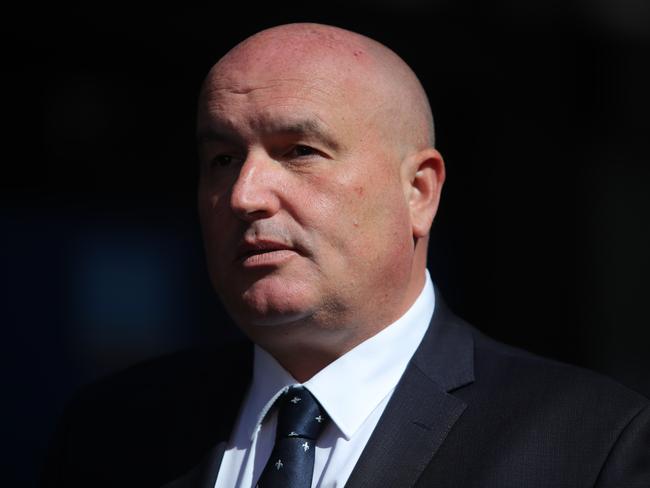
The RTBU and state government are set to face off in court next year, with the government seeking compensation for revenue lost when Opal card gates were left open.
“They’re playing a game of Russian roulette because if we go to court in February and we win we won’t have to worry about an enterprise agreement because the union will be bankrupt,” Mr Elliott said of the RTBU.
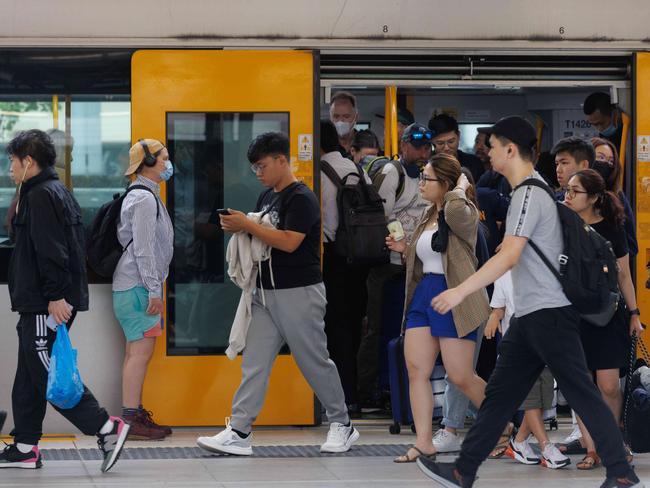
If the federal court finds in favour of the government, it has been speculated that the rail union might have to pay as much as $60 million in compensation.
He urged union boss Alex Claassens to let his members vote on a proposed enterprise agreement.
Mr Claassens said it was a “cop out” to blame rail workers for delays.
“Everyone knows that the poor management of our public transport system predates the current rail dispute by a long time,” he said.
“Rather than pointing the finger at rail workers, the NSW Government and transport management should be focused on finding practical solutions that will provide commuters with the safe, affordable and accessible public transport system they deserve.”
SYDNEY’S TRAINWRECK TRAVEL REPORT CARD REVEALED
Sydney’s peak hour trains are regularly running late and haven’t met their monthly on-time target of 92 per cent since May, the latest rail report card shows.
The punctuality scorecard reveals delays continue to plague the system, even during periods when the union’s industrial stoppages were suspended.
This financial year to date recorded been the worst on-time running in four years and Opposition transport spokeswoman Jo Haylen says it’s so bad commuters are giving up on the system, as shown by poor patronage figures.
Sydney Trains is meant to have at least 92 per cent of peak services arrive within five minutes of their scheduled arrival time.
But for the week ending Friday November 11, just 83.6 per cent per cent of trains were on time during peak hour, while on Monday it dipped to 78.6.
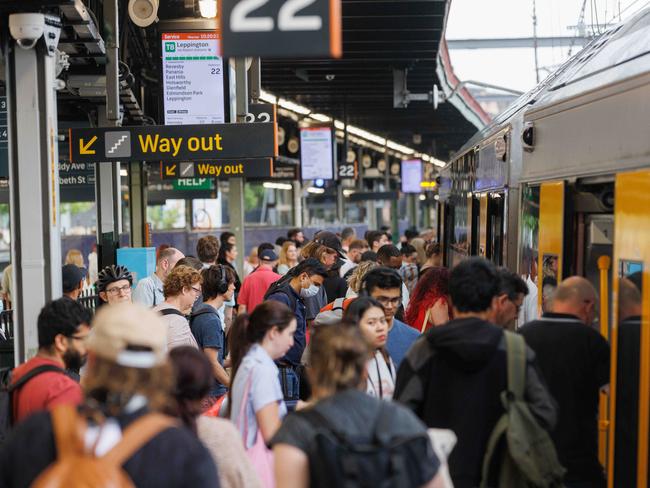
The figure for the entire month of October was recorded at 81.3 per cent, meaning almost 20 per cent of trains were recorded as late.
Last Monday, power supply issues at Chatswood delayed commuters, on Tuesday signal repairs at Strathfield delayed T1 and T9 commuters, and on Thursday urgent track repairs at Circular Quay hit the T2 and T3 lines, while train repairs on the South Coast forced travellers onto buses.
The last time trains met their monthly 92 per cent on-time target was in May, when it reached 93.9 per cent.
The worst line for late trains was the Inner West and Leppington Line, which managed just 71.4 per cent of punctual trains in October, followed by the Illawarra line on 83 per cent.
The Intercity Services have also taken a hit, with punctuality falling to 78.2 per cent for October, with the South Coast line the worst performer on 76.8 per cent.
Rail officials point the finger at “extreme weather events” during October and industrial action to explain delays during March, May, July, August, and September.
But the union rejects that argument, saying the majority of the protected industrial actions had “no impact” on commuters. It says there was no industrial action in September or October.
“To suggest otherwise is completely disingenuous,” union boss Alex Claassens said.
“Rail workers have gone to great lengths to ensure any commuter disruption is minimised - even going so far as to brief management on the steps they should be taking to keep services running at a good standard.”
Opposition transport spokeswoman Jo Haylen said it has been the worst on-time running of the rail network in four years.
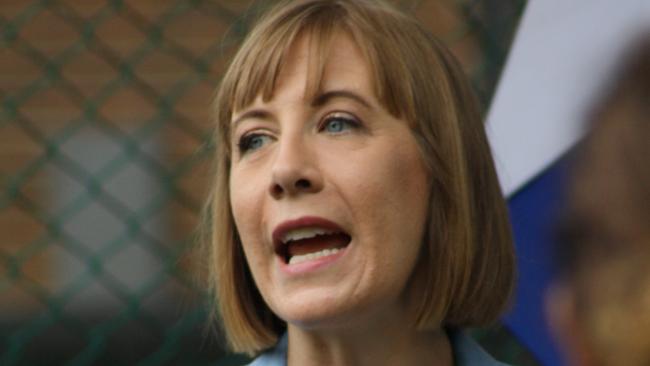
“The government will try and blame this severe decline in train services on industrial action and the weather but services have been consistently bad for the whole year, regardless of whether there has been heavy rain or industrial action.”
She said it had resulted in low patronage - because commuters had lost confidence in reliability.
Passengers were also hit by a fresh bout of industrial action over the weekend, with trains running at reduced timetables on most lines.
Regular rail commuters Seb Luetolf and Shana Makins said they had frequently noticed passengers “scrambling in the morning hopping between platforms at Central when trains get cancelled or are running late.”
“They are late pretty often,” Mr Luetolf told the Daily Telegraph while crammed onto the bustling platform 22, waiting for a train on Sunday morning.
The Surry Hills residents said they felt for their friend who owns the local Comoros Coffee shop, with the unreliable train system significantly hurting his business.
“People aren’t coming into the cafe because they are staying home and not going into the office due to the trains, delays and also because of the strikes this year,” Ms Makins said.
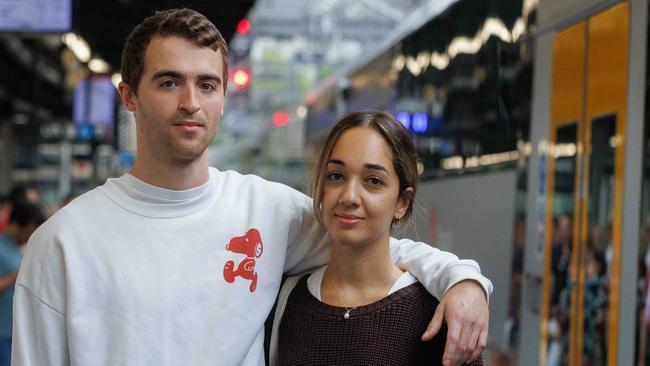
The couple said they were fortunate to have multiple train line options, living close to Central, but empathised with those travelling distances to work, with limited options.”I can imagine it would be so stressful for workers,” Ms Makin said.
“For some people I know it is their only source of transport and the delays for trains can make it really hard to plan the day.”
Transport Minister David Elliott was asked about the poor punctuality data.
In response, a Transport for NSW spokesman said “extreme weather events in October caused landslips and flooding damage” in Sydney’s western and northern suburbs. This caused temporary rail line closures, reduced services, and temporary speed restrictions for safety reasons.
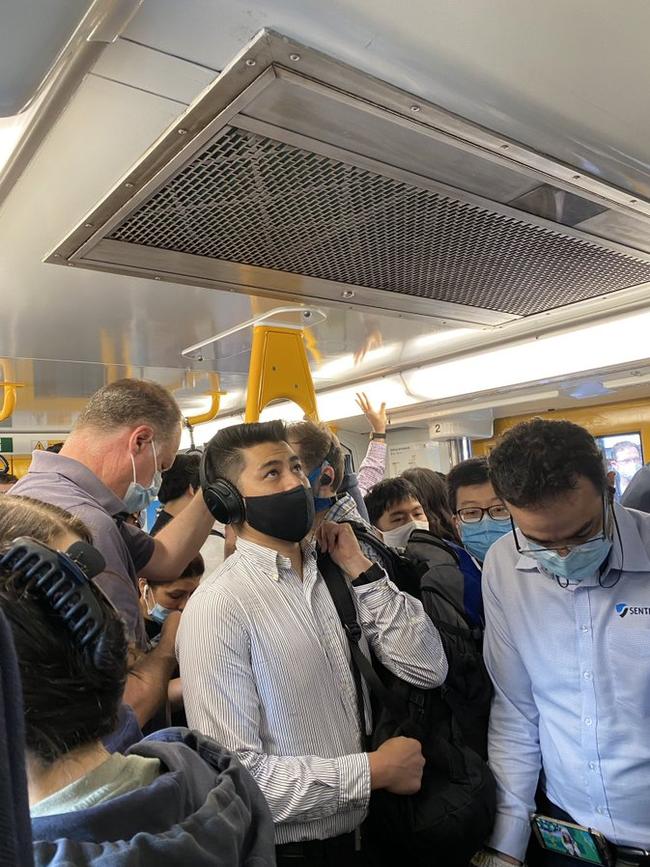
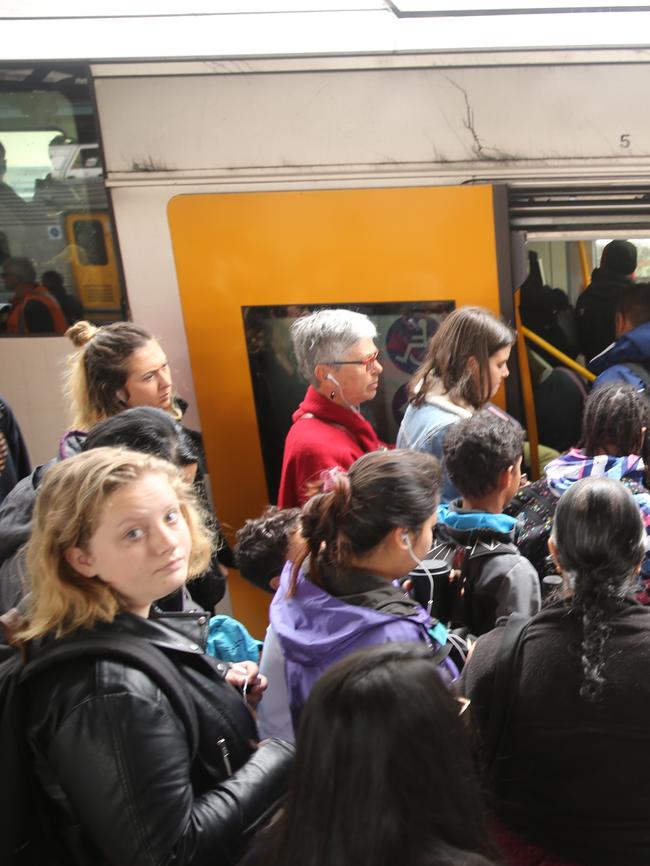
“Major disruptive actions taken by the combined rail unions this year include work stoppages, bans on operating foreign-made rolling stock, bans on issuing and accepting transpositions, bans on altered working, bans on trains operating above certain speeds, and bans on overtime,” he said.
“There has been protected industrial action on the network with varying degrees of impact in February, March, May, July, August, and September.
“Industrial actions such as bans on transpositions, altered working, and overtime are not always obvious to the travelling public, but these actions make it harder for Sydney Trains services to recover quickly from disruptive operational incidents.”
The spokesman said the on-time performance in the 12 months to June this year hit the 92 per cent mark.
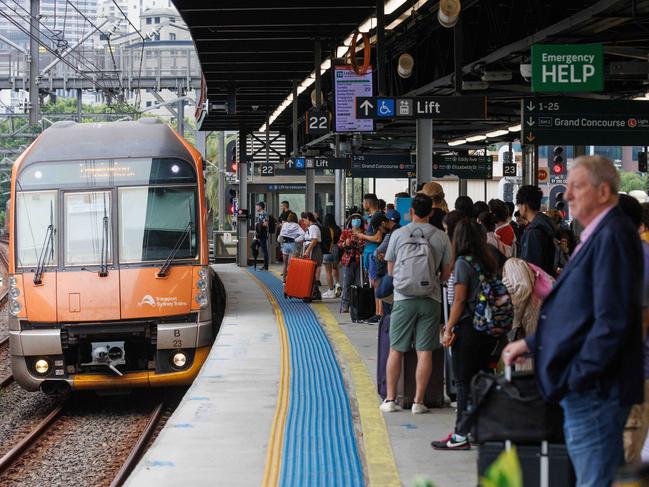
Prior to the disruptions created by Covid, in late 2019, the rail system had struggled to meet benchmarks, with growing overcrowding resulting in longer dwell times.
But with the lockdowns and reduced activity of 2020 and 2021, the rail network easily met its targets, regularly scoring in the mid 90s, as patronage crashed.
Sydney University Transport Professor David Levine said compared to cities in Europe or Asia, Sydney does poorly on public transport, indicating “significant room for improvement”.
He says our city is obviously far less concentrated that those cities, with greater distances, but we could easily improve bus services by creating more dedicated bus lanes and prioritising traffic signals.




